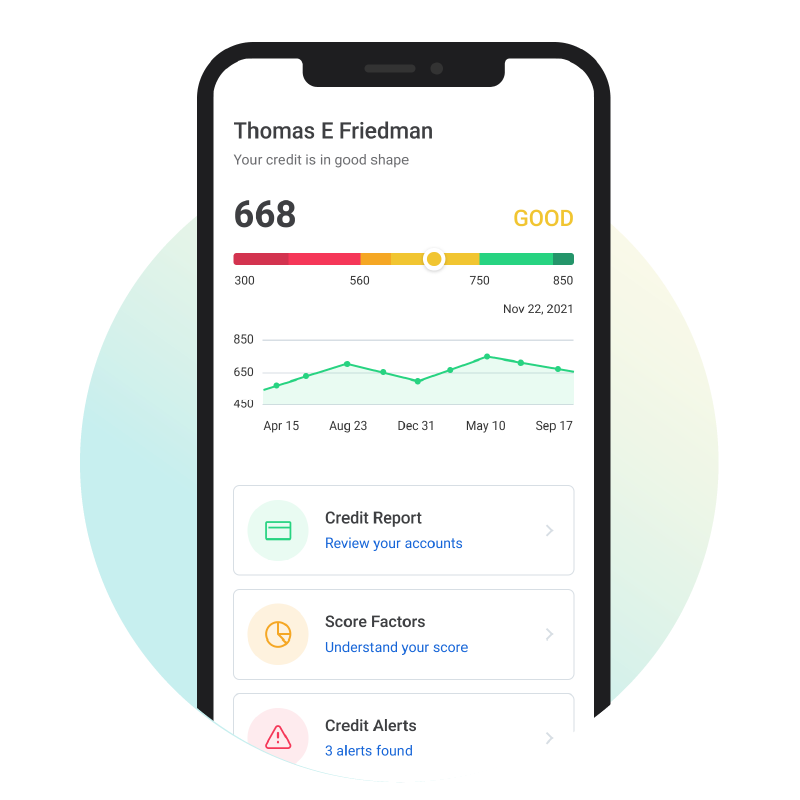Financial technology—better known as fintech—is changing the way we think about credit. From streamlining loan approvals to expanding access for underserved borrowers, fintech innovations are helping lenders move beyond traditional models and make smarter, faster, and more inclusive decisions.
The result? A lending ecosystem that works better for everyone.
Traditional vs. fintech credit
Fintech isn’t just a buzzword—it’s a powerful disruptor of legacy lending practices. While traditional lenders have long relied on credit scores and paper-based processes, fintech companies are introducing smarter, tech-powered systems that prioritize speed, data diversity, and user experience.
Legacy credit management often depends on financial histories, credit bureaus, and manual underwriting. This approach can be limiting—especially for individuals without a well-established credit profile. Plus, it’s often time-consuming, requiring in-person visits and days (or weeks) of back-and-forth paperwork.
Fintech flips the script. These companies enable digital-first credit assessments. Applicants complete forms online, submit data via centralized platforms, and receive faster, more holistic decisions. In many cases, approvals happen in hours—not days. And because fintech lenders often assess alternative data—like transaction behavior or educational background—they can offer credit access to a broader population.
Key fintech innovations reshaping credit practices
The ability to quicken the loan-lending process makes fintech solutions stand out. However, there are also several other innovations that empower fintech to revolutionize the financial landscape. Digital lending platforms, peer-to-peer lending, and alternative credit scoring models change the game, disrupting traditional systems and redefining the lending industry.
Digital lending platforms
Digital lending platforms bring the entire loan journey online—from application to approval to repayment. Borrowers enjoy seamless, self-service experiences and lenders benefit from faster reviewing, allowing institutions to reach decisions in condensed time frames. Digital lending platforms leverage AI and machine learning to determine borrower viability beyond traditional credit scores. They can also conduct risk assessments to further inform lending decisions. Both parties can continue using this digital platform for repayment, viewing credit scores, receiving credit alerts, and understanding debt analysis.
Peer-to-peer business lending
Peer-to-peer (P2P) lending allows individuals to secure loans from each other without needing a financial institution to oversee the transaction. Generally, P2P websites can connect borrowers to lenders, who deposit sums to fund loan requests. Loan applicants have unique financial profiles, which the platform uses to assign a risk category that impacts interest rates. The applicant may receive multiple offers from several lenders and choose whichever option is most appealing. This process can be automated, or both parties can negotiate elements like interest rates and loan amounts.
This unique option offers several benefits for lenders and borrowers. P2P lending benefits lenders by empowering them to increase profits through their interest rates. For borrowers, P2P platforms enhance access to credit for underserved populations.
Those without extensive credit history may be more likely to secure a loan on these platforms because they do not involve a financial institution. Additionally, some borrowers break up their loan requests, taking multiple offers from several lenders rather than one large lump sum. P2P loans also may offer lower interest rates as lenders compete for an individual's business.
Alternative credit scoring models
A significant advantage of fintech solutions is using a more inclusive credit scoring model. Rather than using historical financial information, fintech solutions increase inclusivity by leveraging broader data sources. Personalization allows institutions to tailor models to sectors or demographics, creating a more customized credit evaluation approach. This strategy broadens possibilities for potential borrowers, including those with little to no credit history. Allowing applicants to access loans helps them build their creditworthiness, giving them additional options in the future while satisfying current needs.

Redesign credit for today’s users with data-driven, embedded fintech solutions.
Benefits of fintech in lending
The streamlined access and management of loans and credit deliver several advantages to lenders and borrowers, including:
Faster approvals: Lenders can quickly process and approve applications with fintech solutions. Automated processes simplify approval, reducing tasks for institutions and allowing borrowers to access funds to meet time-sensitive needs.
Greater borrower access: With online capabilities, borrowers can access loan services from any connected location, expanding access for potential borrowers. This enhanced access empowers borrowers to choose lenders outside of their physical location while expanding business opportunities for financial institutions.
Enhanced customer experiences: Personalized experiences with digital platforms can create more meaningful customer experiences. Additionally, fintech companies can offer educational resources and strong support options to help borrowers understand and manage their debt and finances.
Reduced costs for lenders and borrowers: Lenders can save on overhead costs by using online solutions and reducing physical branch requirements. These savings can translate to lower fees or interest rates for borrowers, allowing both parties to achieve savings.
Challenges and considerations to note
Like any transformation, the rise of fintech comes with growing pains. Key considerations include:
Implementation costs: One of the most significant challenges in embracing fintech is the cost and time necessary to implement new technology solutions. Lenders must support increased transactions while maintaining service quality when implementing new technologies. Additionally, teams must thoroughly understand their new solutions, which takes time to achieve. The physical integration can also be expensive, potentially limiting opportunities for some institutions. It's key to evaluate a fintech's ability to get institutions up and running efficiently.
Data privacy and security concerns: New technologies often bring security and data privacy concerns. These concerns are especially present in the financial landscape, as data breaches or unethical practices can severely impact customers. Fintech companies can be top targets for cyberattacks as they have access to sensitive information and operate online. It is crucial to have robust cybersecurity measures to combat these challenges and ease borrower concerns.
Tech dependency: Technology evolves constantly, and fintech companies rely on machine learning, AI, and other advanced models that can carry unique risks. For instance, technological failures or algorithmic biases can result in ethical and operational challenges, ultimately impacting customer relationships and decision-making processes.
Regulatory hurdles and compliance: Fintech lenders must adhere to complex regulations, which can vary by region or country. Fintech solutions push traditional boundaries, which is exceptional for industry advancement but can be concerning for compliance. Regulations must evolve with these technologies to prevent institutions from experiencing operational disruptions or financial penalties.
What's next? The future of fintech in credit
Like most technological advancements, there are several future opportunities for fintech. Potential future trends and developments in credit solutions include:
Intelligent automation (IA): Going beyond basic automation, IA can analyze borrower behavior to help lenders offer proactive, customized financial solutions.
Non-fungible tokens (NFTs): NFTs are digital assets that individuals can trade on certain platforms for other assets, such as digital art. These assets have the potential to further transform the financial landscape by allowing buyers to access specific communities and clubs.
Blockchain: Blockchain makes fraudulent transactions much more challenging to achieve. This technology requires all network computers to approve transactions, reducing the need for banks, notaries, and governments. Blockchain can be especially valuable in the financial landscape to ease borrower cybersecurity concerns.
Why trust Array for fintech solutions?
Array offers private label products for leading digital brands, financial institutions, and fintechs. We empower clients to become a one-stop shop for financial services with solutions embedded into existing digital experiences. Our solutions help consumers maintain digital privacy, protect their identity, and own their financial future in one centralized location.
With support from leaders in the tech world, you can feel confident in our ability to deliver tailored solutions. Historically, our clients launch market-proven products in weeks. Hundreds of organizations have partnered with us to drive growth, and we want to add you to our list of satisfied customers.
Modernize your credit experience with embedded fintech that’s built for today’s borrowers.
Book a 15-min call.
Related articles
Disclaimer: Array takes pride in ensuring the information we share is accurate and up-to-date; however, we understand that the information you read may differ from the product(s) and/or service(s) mentioned. We present the product(s) and/or service(s) you read about without warranty. We recommend you review the product and/or services’ terms and conditions before you make a decision. If you encounter inaccurate or outdated information, let us know by writing to: info@array.com.
Editorial Note: This content is the author’s opinion, expression, and/or recommendation(s).

Post by Ryane Hecker


